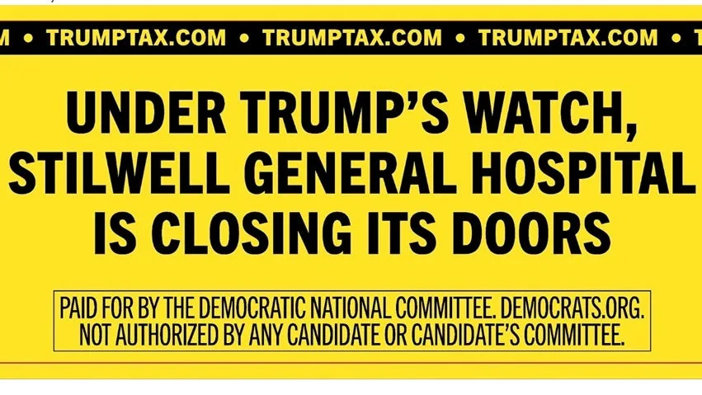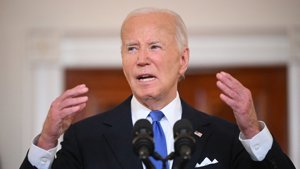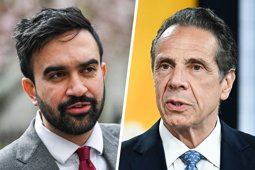
Democrats Accuse Trump Law of Threatening Rural Hospitals
Democrats target Trump with billboards near rural hospitals, blaming his new law for threatening health care access.
Billboards Spotlight Health Care Concerns in Rural America
The Democratic National Committee (DNC) has escalated its criticism of President Donald Trump’s domestic policy agenda, unveiling billboards near three rural hospitals in Missouri, Oklahoma, and Montana. These billboards accuse Trump of “gutting rural health care,” aiming to alert voters in regions that have long been Republican strongholds to what Democrats describe as devastating consequences of the president’s latest legislative package.
According to the DNC, the targeted hospitals—located in Silex, Missouri; Stillwell, Oklahoma; and Missoula, Montana—are closing or scaling back services as a result of the so-called “One Big Beautiful Bill,” signed into law by President Trump on July 4. The sweeping $3.4 trillion measure, narrowly approved by the GOP-controlled House and Senate, fulfills several of Trump’s second-term campaign promises, including permanent tax cuts, new immigration and border security funding, and significant revisions to federal programs such as Medicaid and food stamps.
The bill includes extensions of Trump’s 2017 tax cuts and eliminates taxes on tips and overtime pay, reducing federal revenue by an estimated $4.4 trillion over the next decade. Republicans defend the law as necessary for economic growth, with RNC chair Michael Whatley emphasizing, “The tax cuts are going to be very, very strong indicators, no tax on tips, no tax on overtime, no tax on Social Security. Plus we’re extending those Trump tax cuts. This is going to help every family in every community all across the country.”
Debate Over Medicaid Restructuring and Rural Impact
One of the bill’s most controversial provisions is the restructuring of Medicaid, the nearly 60-year-old program that provides health coverage to around 71 million low-income Americans. The Congressional Budget Office (CBO) estimates that up to 10 million people could lose coverage over the next ten years. Democrats argue that the new work requirements and funding changes will force hospitals and nursing homes in rural areas to close, further eroding already fragile health infrastructure.
“Rural hospitals were already on the brink of collapse thanks to Donald Trump, but now he has put the last nail in the coffin for rural hospitals with his billionaire budget bill,” DNC chair Ken Martin stated. “In states across the country, hospitals are either closing their doors or cutting critical services, and it’s Trump’s own voters who will suffer the most.”
To counter these claims, Republicans highlight the bill’s inclusion of a $60 billion Rural Health Transformation Program. This fund, they argue, is designed to support rural health care providers and address long-standing health disparities in underserved areas. However, the DNC contends that the funding will not be sufficient, citing non-partisan analyses that say half of the funds will be distributed equally among all states that apply, regardless of actual need.
The DNC’s latest campaign also underscores the bill’s projected impact on the national debt, with the CBO forecasting a $4 trillion increase over the next decade. Democrats claim that the cuts to Medicaid and food stamps are primarily intended to pay for the extended tax reductions benefiting higher-income earners, while Republicans dispute these figures and emphasize their focus on fiscal responsibility.
As the 2026 midterm elections approach, both parties are intensifying their messaging around the “One Big Beautiful Bill.” For Democrats, the focus is on health care access and economic security for rural Americans. For Republicans, the narrative centers on tax relief, strong borders, and reformed entitlement programs. The outcome of this debate is likely to shape not only the political landscape but also the future of health care access in rural America.






